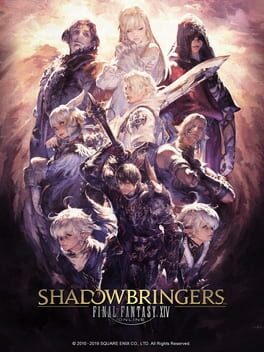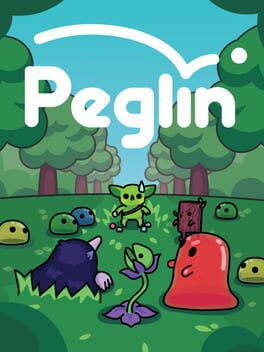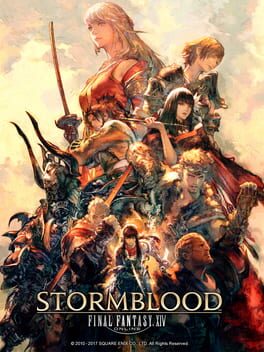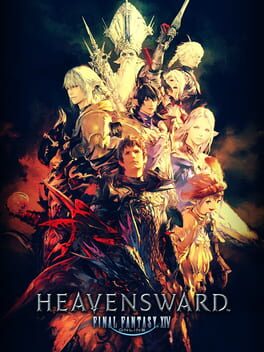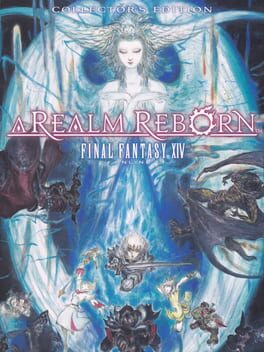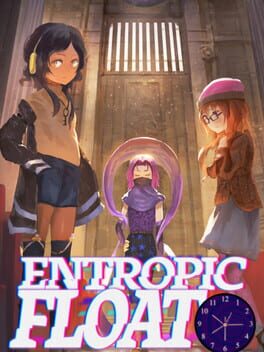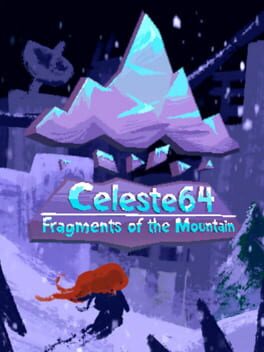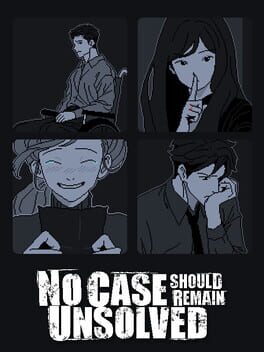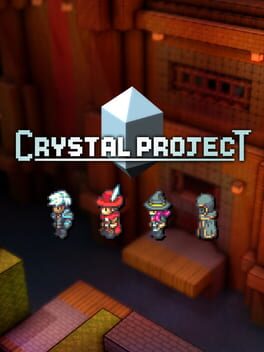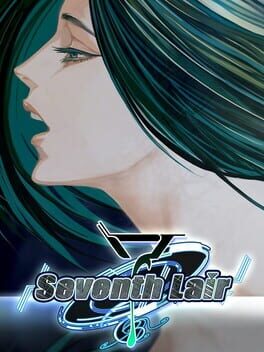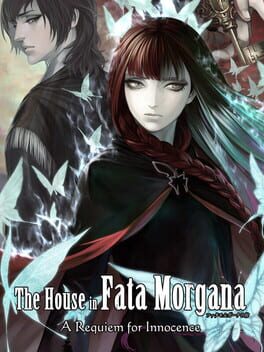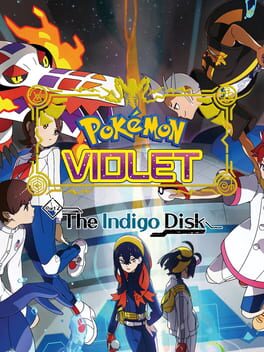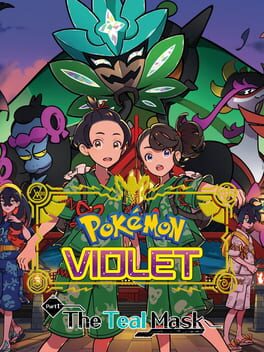LunaFlare
This is definitely my favourite expansion story so far. While I don't have total brainrot for it, the way others do it and I do other things, the character drama and plot mysteries are gripping. While Emet-Selch's foppery is mostly just kind of annoying, and Vauthry is a horrible trope incarnate, after my complaints about the villains of Stormblood I'm happy to say that I find the main antagonist much more compelling here, in terms of believable yet opposable motivation. Even where some twists were kind of easy to see coming, the fact I was engaged enough to try and predict them, and things were foreshadowed such that I could be correct, is a good sign.
I am not without complaints - the alternate universe aspect seems kind of half-baked. they give all of the races different names, but then just stop there. All sorts of other specific things like speech patterns and distance measurements are exactly the same. It comes off as shallow. Also, Y'shtola's blindness going from a secret she's hiding to something openly acknowledged without any reaction at all from other characters is a huge waste of potential character moments.
The new role quest system is kind of a mixed bag - I totally understand why they didn't want to have to keep writing questlines for every job, and the ability to tell more general stories that still reference your general abilities is really cool. I quite like the use of them to explore the backstories of the Warriors of Darkness. However, the lack of contextualisation for new class skills is a huge letdown. As a Summoner, everything leading up to learning how to summon Bahamut was a huge deal. Here, I just kind of suddenly get Phoenix after doing one too many dungeons, and the reaction is "oh ok cool i guess this is here now".
I wrote most of this review relatively early into the expansion, and as I continue to play I haven't felt much I wanted to add or change. I'm just having a mostly good time!
Don't mind the longer than usual playtime of this one, I stalled out finishing it to prepare for Dawntrail.
I am not without complaints - the alternate universe aspect seems kind of half-baked. they give all of the races different names, but then just stop there. All sorts of other specific things like speech patterns and distance measurements are exactly the same. It comes off as shallow. Also, Y'shtola's blindness going from a secret she's hiding to something openly acknowledged without any reaction at all from other characters is a huge waste of potential character moments.
The new role quest system is kind of a mixed bag - I totally understand why they didn't want to have to keep writing questlines for every job, and the ability to tell more general stories that still reference your general abilities is really cool. I quite like the use of them to explore the backstories of the Warriors of Darkness. However, the lack of contextualisation for new class skills is a huge letdown. As a Summoner, everything leading up to learning how to summon Bahamut was a huge deal. Here, I just kind of suddenly get Phoenix after doing one too many dungeons, and the reaction is "oh ok cool i guess this is here now".
I wrote most of this review relatively early into the expansion, and as I continue to play I haven't felt much I wanted to add or change. I'm just having a mostly good time!
Don't mind the longer than usual playtime of this one, I stalled out finishing it to prepare for Dawntrail.
2022
(This builds on my reviews of previous expansions)
This one's a bit messy. My thoughts on it evolved a lot as I played through it further, especially through the patch content, so a lot of notes I took earlier on aren't entirely accurate. I've got to try to cobble things together and we'll see if it remains coherent.
While things are not nearly as padded as ARR, the pacing of Stormblood seems like a significant downgrade from Heavensward. A major factor in this is, of course, the split between the two different regions, and Othard itself is diverse enough to slow things down yet more. You need to be introduced to several different locations, several different local cultures, and ingratiate yourself with them through several different rounds of tedious errands. The idea of the Ala Mhigan rebellion suddenly going to pot is an interesting one, but in execution it leads to the pace resetting entirely in Othard, and when you come back all of the consequences have been resolved while you were gone and you pick up exactly where you left off, so the impact is lost.
I'm not a big fan of either of the major villains. Both of them talk up their love for violence/killing/torture as appropriate to a tedious and one-dimensional degree. I get the impression they're supposed to be "love to hate" villains, but it mostly falls flat for me, I just hate to hate them. Zenos' bloodthirsty antics, actively sabotaging his own war just to rile up the WoL, kind of undermine the resistance's agency in their own rebellion narrative, and his attempts to say the player is "just like him" come off incredibly trite.
I find Yotsuyu similarly bland in the main questline, and the flashbacks to her past are poorly timed and come off like a bad sob story, but I do like what they do with her in the patch content, which helps assuage things. Speaking of flashbacks though, I feel like I noticed a greater-than-usual reliance on them (and similarly "meanwhile" cutaways) for storytelling in this expansion, often at times where such explicit detail wasn't necessary.
I ragged on the Scions a bit in my ARR review, and they were absent for a lot of Heavensward, but I'm happy to say they come into their own more here, especially with the help of new additions to the roster.
This is a rather specific nitpick, but musically, the fact that the Stormblood main theme is included in the normal battle theme, dungeon boss theme, and most location themes makes it really oversaturated. It's hard to assign the motif any clear narrative meaning since it's diluted across the expansion's two disparate settings, so it just feels unoriginal.
There's a lot of complaining in this review, but it's not all bad, obviously, it's just when the expansion is one part of a larger package you can only really comment on the differences, and in this case those happen to mostly be a step down.
One minor detail I did really like is how the quests for Aether Currents, rather than being one-off menial tasks as they were when introduced, more often lead into a longer chain of sidequests with an interesting story. That's a clever way to focus the player's attention.
This one's a bit messy. My thoughts on it evolved a lot as I played through it further, especially through the patch content, so a lot of notes I took earlier on aren't entirely accurate. I've got to try to cobble things together and we'll see if it remains coherent.
While things are not nearly as padded as ARR, the pacing of Stormblood seems like a significant downgrade from Heavensward. A major factor in this is, of course, the split between the two different regions, and Othard itself is diverse enough to slow things down yet more. You need to be introduced to several different locations, several different local cultures, and ingratiate yourself with them through several different rounds of tedious errands. The idea of the Ala Mhigan rebellion suddenly going to pot is an interesting one, but in execution it leads to the pace resetting entirely in Othard, and when you come back all of the consequences have been resolved while you were gone and you pick up exactly where you left off, so the impact is lost.
I'm not a big fan of either of the major villains. Both of them talk up their love for violence/killing/torture as appropriate to a tedious and one-dimensional degree. I get the impression they're supposed to be "love to hate" villains, but it mostly falls flat for me, I just hate to hate them. Zenos' bloodthirsty antics, actively sabotaging his own war just to rile up the WoL, kind of undermine the resistance's agency in their own rebellion narrative, and his attempts to say the player is "just like him" come off incredibly trite.
I find Yotsuyu similarly bland in the main questline, and the flashbacks to her past are poorly timed and come off like a bad sob story, but I do like what they do with her in the patch content, which helps assuage things. Speaking of flashbacks though, I feel like I noticed a greater-than-usual reliance on them (and similarly "meanwhile" cutaways) for storytelling in this expansion, often at times where such explicit detail wasn't necessary.
I ragged on the Scions a bit in my ARR review, and they were absent for a lot of Heavensward, but I'm happy to say they come into their own more here, especially with the help of new additions to the roster.
This is a rather specific nitpick, but musically, the fact that the Stormblood main theme is included in the normal battle theme, dungeon boss theme, and most location themes makes it really oversaturated. It's hard to assign the motif any clear narrative meaning since it's diluted across the expansion's two disparate settings, so it just feels unoriginal.
There's a lot of complaining in this review, but it's not all bad, obviously, it's just when the expansion is one part of a larger package you can only really comment on the differences, and in this case those happen to mostly be a step down.
One minor detail I did really like is how the quests for Aether Currents, rather than being one-off menial tasks as they were when introduced, more often lead into a longer chain of sidequests with an interesting story. That's a clever way to focus the player's attention.
(This builds on my review of A Realm Reborn)
As far as gameplay goes, there's not a ton new to comment on. My understanding is that systems changes from future expansions affect the game overall, so things are largely the same as they were for me in my recent playthrough of ARR. Compared to the ARR patches, there are more dungeons and fewer trials, which as someone reliant on Duty Support for pacing I appreciate. I especially like how the plot-relevant NPCs can join you for dungeons and get unique lines.
In terms of story, Heavensward successfully achieves a much greater sense of pacing and stakes than its predecessor, and the relatively small cast of important characters are characterised much better than the ARR Scions were, in my opinion. I especially appreciate how the patch content deals with the realistic aftermath of the main story's seemingly happy ending. It does slightly bother me that some of the threads from the ARR patch content leading up to this expansion seem to be undone with fewer consequences than expected.
The voice recast, while presumably a necessary result of circumstance, is hard to ignore. Even if the performances are arguably better overall, the difference takes some getting used to, and I miss some specific standout performances from ARR. Not something that really affects the score either way, just a note I wanted to make. However, the greater quantity of voiced cutscenes when important is much appreciated, and going back to some ARR content makes the silence in some crucial scenes deafening.
As far as gameplay goes, there's not a ton new to comment on. My understanding is that systems changes from future expansions affect the game overall, so things are largely the same as they were for me in my recent playthrough of ARR. Compared to the ARR patches, there are more dungeons and fewer trials, which as someone reliant on Duty Support for pacing I appreciate. I especially like how the plot-relevant NPCs can join you for dungeons and get unique lines.
In terms of story, Heavensward successfully achieves a much greater sense of pacing and stakes than its predecessor, and the relatively small cast of important characters are characterised much better than the ARR Scions were, in my opinion. I especially appreciate how the patch content deals with the realistic aftermath of the main story's seemingly happy ending. It does slightly bother me that some of the threads from the ARR patch content leading up to this expansion seem to be undone with fewer consequences than expected.
The voice recast, while presumably a necessary result of circumstance, is hard to ignore. Even if the performances are arguably better overall, the difference takes some getting used to, and I miss some specific standout performances from ARR. Not something that really affects the score either way, just a note I wanted to make. However, the greater quantity of voiced cutscenes when important is much appreciated, and going back to some ARR content makes the silence in some crucial scenes deafening.
(This is a review of A Realm Reborn specifically, including patch content. There doesn't seem to be another good entry on backloggd for this)
Whoo boy. Don't know how to feel about this one. I always said I would never get into MMOs because a whole bunch of stuff fundamental to the genre seemed like a huge personal turnoff. But discussion of this game is inescapable online, including amongst my friends, so I finally conceded, intending to treat it as a social activity...
...instead, I fell right into its gameplay loop, hook line and sinker, and forged ahead alone to pass the time. Maybe I had the reason to avoid it backwards all along. I don't really have the genre experience to say what's standard and what's FF14's specific innovations, so rather than comment on anything too specific about the gameplay I'll just say that... I'm enjoying myself. It's captured me at a time where I've otherwise felt pretty aimless about how to spend my time. Good job, I guess. The structure has an almost Skyrim-like quality for me, where I can bum around the world trying out a bunch of different skills, chasing up a bunch of different sidequests, killing time idly forever - except, like, a lot better, and with an actually good story attached.
For a reboot that saved the game and perhaps the franchise from oblivion, it's somewhat ironic that A Realm Reborn seems to now be considered the worst part of the existing experience, and while it's all I've experienced so far I have to hope people are right that it only improves from here. While the overall moment to moment gameplay and various optional systems are engaging me, the main story quest of 2.0 is full of tedious padding, and no amount of lampshading or plot justification makes that any more fun.
The patch content is significantly more compelling, but having to constantly stop and either queue or schedule 8-person raids, with no NPC support option like all of 2.0 had, kills pacing dead as you have to wait for real life obstacles to be able to play. I know that's, like, normal MMO stuff, but that's exactly part of why I always avoided the genre, and people like to talk up how accommodating the game is to a solo player - seemingly forgetting about this part.
Speaking of exaggerated recommendations, the free trial isn't quite as accommodating as the memes would have you believe. Inventory management without retainers is downright Sisyphean, and lack of access to the market board significantly hampers progress in crafting classes. Don't get me wrong, the sheer amount of content available for free is staggering by the standards of a paid game's free trial... but you're definitely not immune from stifling reminders that they'd really like you to buy the game.
EDIT 25/05:
Doing more ARR side content as I play through Heavensward, a note about the writing of the crafter sidequests occurs to me. Usually, the game's writing does a pretty good job of acknowledging context from other parts of the game, but these feel like an exception. They're written in isolation, not acknowledging your character relations, combat prowess or even other crafting skills, despite them being mechanically necessary to gather materials for crafting. It's an uncharacteristic and distracting dissonance.
Whoo boy. Don't know how to feel about this one. I always said I would never get into MMOs because a whole bunch of stuff fundamental to the genre seemed like a huge personal turnoff. But discussion of this game is inescapable online, including amongst my friends, so I finally conceded, intending to treat it as a social activity...
...instead, I fell right into its gameplay loop, hook line and sinker, and forged ahead alone to pass the time. Maybe I had the reason to avoid it backwards all along. I don't really have the genre experience to say what's standard and what's FF14's specific innovations, so rather than comment on anything too specific about the gameplay I'll just say that... I'm enjoying myself. It's captured me at a time where I've otherwise felt pretty aimless about how to spend my time. Good job, I guess. The structure has an almost Skyrim-like quality for me, where I can bum around the world trying out a bunch of different skills, chasing up a bunch of different sidequests, killing time idly forever - except, like, a lot better, and with an actually good story attached.
For a reboot that saved the game and perhaps the franchise from oblivion, it's somewhat ironic that A Realm Reborn seems to now be considered the worst part of the existing experience, and while it's all I've experienced so far I have to hope people are right that it only improves from here. While the overall moment to moment gameplay and various optional systems are engaging me, the main story quest of 2.0 is full of tedious padding, and no amount of lampshading or plot justification makes that any more fun.
The patch content is significantly more compelling, but having to constantly stop and either queue or schedule 8-person raids, with no NPC support option like all of 2.0 had, kills pacing dead as you have to wait for real life obstacles to be able to play. I know that's, like, normal MMO stuff, but that's exactly part of why I always avoided the genre, and people like to talk up how accommodating the game is to a solo player - seemingly forgetting about this part.
Speaking of exaggerated recommendations, the free trial isn't quite as accommodating as the memes would have you believe. Inventory management without retainers is downright Sisyphean, and lack of access to the market board significantly hampers progress in crafting classes. Don't get me wrong, the sheer amount of content available for free is staggering by the standards of a paid game's free trial... but you're definitely not immune from stifling reminders that they'd really like you to buy the game.
EDIT 25/05:
Doing more ARR side content as I play through Heavensward, a note about the writing of the crafter sidequests occurs to me. Usually, the game's writing does a pretty good job of acknowledging context from other parts of the game, but these feel like an exception. They're written in isolation, not acknowledging your character relations, combat prowess or even other crafting skills, despite them being mechanically necessary to gather materials for crafting. It's an uncharacteristic and distracting dissonance.
2022
I make no secret in other reviews of how highly I think of knowledge-based investigation games, with Her Story being one of the early examples that really kicked off the popularity of this interesting little genre. Not only is this game another work from the very same director, but conceptually it blows the original out of the water with a massively expanded scope - you've got the plots of three movies, the fates of several actors, and a little something extra special all to keep track of. The amount of work it must have taken to put this all together is staggering.
Unfortunately, on the gameplay side of things, I do have a couple of qualms. While the mysteries are compelling once you've got more context, at the start before you really know what you're looking for, things can feel very aimless, making it hard to figure out what amongst the information overload is important to note. Conversely, while jumping between clips with shared objects is a novel idea that helps broaden your search early on, later when you're trying to find the last few new clips, the lack of control and inability to try specific things, as with Her Story's keywords, can be really frustrating, especially when trying to hunt down the secrets. By the end of the game I was pretty frustrated with the pace of progress, and when the credits rolled I felt a sense of relief more than anything, which isn't a great sign. Maybe this was just a skill issue on my end? But that took me out of the experience and made it harder to emotionally connect to the themes the game wanted to explore. It also left me missing some crucial scenes that I only found about later, despite the game declaring itself to be over.
Unfortunately, on the gameplay side of things, I do have a couple of qualms. While the mysteries are compelling once you've got more context, at the start before you really know what you're looking for, things can feel very aimless, making it hard to figure out what amongst the information overload is important to note. Conversely, while jumping between clips with shared objects is a novel idea that helps broaden your search early on, later when you're trying to find the last few new clips, the lack of control and inability to try specific things, as with Her Story's keywords, can be really frustrating, especially when trying to hunt down the secrets. By the end of the game I was pretty frustrated with the pace of progress, and when the credits rolled I felt a sense of relief more than anything, which isn't a great sign. Maybe this was just a skill issue on my end? But that took me out of the experience and made it harder to emotionally connect to the themes the game wanted to explore. It also left me missing some crucial scenes that I only found about later, despite the game declaring itself to be over.
2022
As a friend of a friend of the author, and the writer of the first review for the game on this site, I feel some responsibility to try particular hard to sell it well. Unfortunately for me, the core appeal is naturally in the quality of the writing, and I don't have the vocabulary to compliment that in a way that doesn't sound generic. Fortunately for us all, it is in fact, very good - emotionally touching, thematically resonant, deeply intriguing, and with highly appealing, distinct and memorable characters.
Given the restrictions placed upon the game by the scope of its budget, the presentation is fairly impressive as well, making the most of the tools available to include good-looking character designs, and employing the game's music effectively - in particular, I can't stop thinking about the game's haunting main theme, and that's in large part due to finding the right music with the right tone and deploying it at the right moments.
Given the restrictions placed upon the game by the scope of its budget, the presentation is fairly impressive as well, making the most of the tools available to include good-looking character designs, and employing the game's music effectively - in particular, I can't stop thinking about the game's haunting main theme, and that's in large part due to finding the right music with the right tone and deploying it at the right moments.
Short and sweet. Obviously not going to be as tight as the pixel-precision platforming of the original, nor as polished as a full game, but the level design is mostly made to compensate for it, though there were still some tricky moments with depth perception. Also, the presentation and the updates on the characters are both as cute as a button.
Another entry in an increasingly long line of satisfying knowledge-based deduction games. This one admittedly features somewhat less work on the player's part, with a lot of memories being accessible just by chaining keywords from one to the next, but unlocking some and putting them all in order still requires some deductions and feels great, with a requisite "big important detail" you have to catch onto to untangle things in the late-game. The game is very short, playable in one session, but it's priced appropriately and that helps you keep all the details in your head. My only real gripe is that you can't zoom out or otherwise easily navigate the game window full of testimonies, things get pretty cluttered pretty fast and it can be hard to take note of things holistically instead of focusing just on the last thing you've seen.
2022
As a big fan of FFV, I've long been aware of more modern job system games like this and recently felt a pull to give the demo a try. Unfortunately it just didn't really grab me? The job system didn't open up into interesting abilities and combinations fast enough and the barebones world and characters didn't do much to pull me in.
Some minor quibbles which are not nearly such sweeping statements and yet I feel still warrant comment: The platforming is really unnecessarily finicky, so many jumps take the absolute limit of your range. Yet I imagine if they were a full block shorter you'd probably frequently overshoot. I guess the voxel world design is something of a limitation here, if jumps could be maybe half a block narrower they'd feel a lot smoother. Also, managing aggro in the early game is a pain in the neck - your mages are slower than your tanks and liable to do more damage, so they'll just attract attention and get gibbed. It's a bit frustrating.
Some minor quibbles which are not nearly such sweeping statements and yet I feel still warrant comment: The platforming is really unnecessarily finicky, so many jumps take the absolute limit of your range. Yet I imagine if they were a full block shorter you'd probably frequently overshoot. I guess the voxel world design is something of a limitation here, if jumps could be maybe half a block narrower they'd feel a lot smoother. Also, managing aggro in the early game is a pain in the neck - your mages are slower than your tanks and liable to do more damage, so they'll just attract attention and get gibbed. It's a bit frustrating.
2013
Wow, I booted this up and was immediately disappointed. The English translation is a trainwreck. It's extremely stiff, using the most basic tropes to translate phrases, completely disregarding standards and character voices set by the previous game in the series. And when the gameplay is entirely reading, the text being unreadably bad is kind of inexcusable! It's an insult to the incredibly high quality of the script in the previous two games. I may return to it later for completion's sake, but my enthusiasm to devour it ASAP has been absolutely drained.
I was eager to jump into this after finishing the main game, but I think that timing may have been a mistake - for unrelated reasons, I was quite depressed, and I didn't find myself feeling very strongly about a lot of what was presented, though I can tell I was supposed to.
I suppose a tragedy of a foregone conclusion is a very different type of story to the beguiling mystery of the main game, and it may be that's just not as much to my tastes - Fata Morgana enraptured me when it hit me with its big surprises, and that's often what I enjoy most in this medium. It's not a flaw of this game that it's not that kind of story, and certainly that should have been obvious from the premise, so it's not so much a letdown as much as just a mismatch. At the same time, it also feels so much like an extension of the main game, retreading so much of Door 8's content, that it feels hard to think about and rank it as a separate experience.
Whichever reason it didn't resonate with me - quite possibly a combination of both - it doesn't feel fair to give it a numerical rating. And all this rambling is not to say I didn't feel anything about the game, it was definitely interesting to get a more detailed look at the original history of the setting, and Morgana's character remains fascinating.
I suppose a tragedy of a foregone conclusion is a very different type of story to the beguiling mystery of the main game, and it may be that's just not as much to my tastes - Fata Morgana enraptured me when it hit me with its big surprises, and that's often what I enjoy most in this medium. It's not a flaw of this game that it's not that kind of story, and certainly that should have been obvious from the premise, so it's not so much a letdown as much as just a mismatch. At the same time, it also feels so much like an extension of the main game, retreading so much of Door 8's content, that it feels hard to think about and rank it as a separate experience.
Whichever reason it didn't resonate with me - quite possibly a combination of both - it doesn't feel fair to give it a numerical rating. And all this rambling is not to say I didn't feel anything about the game, it was definitely interesting to get a more detailed look at the original history of the setting, and Morgana's character remains fascinating.
Multiple people I know call this the best visual novel ever written. While I expected hyperbole like that to lead to some backlash, I still trusted their tastes enough to give it a try. And boy am I glad I did. It starts off as a relative slowburn, but those sections are still well-constructed, and the structure of the plot both demands and justifies it. And then every time you think you don't really see what the big deal is, something hits. "Oh, so that's why people love this game... Ehh, but still..." and then something else hits. And then something else. It just keeps building up, going further and further, captivating me more and more, tackling subjects I never would have expected.
On top of the incredibly heartfelt story, the game also has striking visuals and an enchantingly distinctive soundtrack.
On top of the incredibly heartfelt story, the game also has striking visuals and an enchantingly distinctive soundtrack.
I enjoyed my time, by all means, but I think my expectations were a little higher than perhaps reasonable - some aspects felt like a bit of a letdown. The main story of the DLC wasn't that much bigger than the Teal Mask as I was expecting, though I do expect there'll be much more of a postgame to enjoy. Despite continuing the story of the characters from the Teal Mask, something about how they were handled felt a bit less satisfying here, possibly because there's less focus on them. Also, the events in Blueberry Academy feel pretty much entirely tacked on to justify the inclusion of a new area - it is a cool new area, but the plot doesn't really start until you're back in Paldea, which in retrospect is sort of predictable given the premise, but still makes things awkward. As far as the main plot goes I think I prefer the Teal Mask, which is kind of a shame since it ends on a cliffhanger and leaves all of its resolution up to this.
Still, it's not all bad. As said, the new area is cool, I have a lot of hopes for the postgame, and the touches of Unova nostalgia hit me right where it hurts. The double battle focus for the combat is also great, though I wish there were more than the five major fights - again, though, holding out for postgame. I'll have to come back and dock some points if all these hopes are let down, I guess.
Still, it's not all bad. As said, the new area is cool, I have a lot of hopes for the postgame, and the touches of Unova nostalgia hit me right where it hurts. The double battle focus for the combat is also great, though I wish there were more than the five major fights - again, though, holding out for postgame. I'll have to come back and dock some points if all these hopes are let down, I guess.
For reasons unknown to me I didn't sit down and review this when I actually played it so my thoughts are going to be a less detailed and organised than I'd like. Nonetheless, I'm quite impressed by this DLC. The writing continues to resonate, there are some seriously challenging battles in the post-game difficulty mode, and it makes me really excited for the Indigo Disk. My only complaint would be that it's a bit short, but since it's part of the same purchase as its other half, it works fine as a set-up and teaser, as long as Disk continues to impress.
